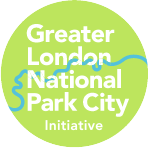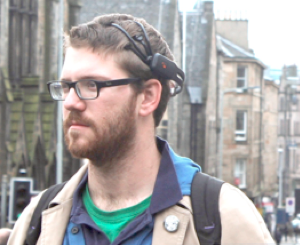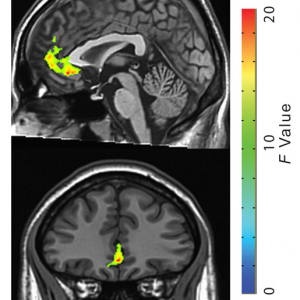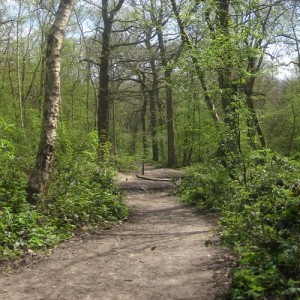

A Health Perspective: Making Greater London the World’s first National Park City
London: National Park City, Launch event, City Hall, 17 July 2015
Beth Collier
A Health Perspective: Making Greater London the World’s first National Park City; Valuing our Natural Capital
I’m a nature-based psychotherapist, I use London’s green and wild places as a therapy room. Nature plays a big part in my work, becoming a co-counsellor offering powerful metaphors and mirrors for exploring our inner emotional world. The natural and changing state of outdoor settings helps us feel more connected to something meaningful and engages our senses.
In 2013 I founded Wild in the City! to help Londoners make nature an everyday experience, normalising contact with nature during our work, our rest and our play.
I’m going to be speaking about the importance of making London the world’s first National Park City and the importance of valuing our natural capital, from a health perspective.
Valuing our natural capital means understanding the deep connection between nature and health and the health consequences of rapid urbanisation. Urbanization is associated with increased levels of stress, anxiety and depression.1 In London over 50% of us are overweight. The evolution of moving into cities has happened so fast, we can’t keep up with the pace. Greening, or conceiving a National Park City could itself be an important strategy for improving emotional2 and physical health.
The health benefits of time spent in nature are both physiological and psychological3, reducing blood pressure and stress, promoting faster healing after surgery, improving memory, cognition4 and attention5, lowering levels of depression and anxiety and enhancing feelings of well-being. Research has shown that just viewing green spaces triggers areas of the brain associated with empathy, love and stability, whereas being in built-up environments triggers areas associated with stress and fear.6 Simply put nature is therapeutic, with or without a professional guiding you. People living close to nature are less stressed, less obese and live longer.7 We can improve and maintain our health simply by having sensory a experience of nature.
I want to illustrate some of these benefits with the example of a friend who recently discovered nature, on her doorstep, not having realised that it was there.
A few years ago she was in a car accident and is still recovering from her injuries. She suffers from high blood pressure, poor memory and concentration, she has balance and coordination problems and has experienced periods of anxiety. Her symptoms are made worse by stress. Her condition has been debilitating, being unable to work for a long period has affected her income; reducing her mobility and ability to socialise.
She has regular NHS physiotherapy, exercises include watching a spinning ball as her therapist swings it around her head, walking back and forth moving her head up and down and side to side, looking left and right at 45 degree angles and keeping her focus straight whilst turning her head left and right.
She recently discovered South Norwood Country Park, its a 125 acre nature reserve in south London, and has been so excited to learn about the wildlife there. She has lived in the area for over 10 years and had no idea it was there. On a recent butterfly walk we were watching butterflies as they danced around our heads. There was a special moment where there were four Kestrals in flight, two parents and two offspring, and then suddenly there was a Sparrowhawk soaring high above them, we didn’t know what to follow or where to look. My friend realised she was doing things naturally that her physio was training her to do. Her head was turning, her senses were engaged and observing and noticing things, kept her alert. She loved the excitement of the group as we all shared the thrill of witnessing so many birds of prey and it gave her a sense of belonging and inclusion.
She’s been busy posting pictures of her new discoveries on Facebook, her friends have asked her if she’s been away, with all these pictures of the countryside. “No”, she’s told them, “I haven’t left SE25, this is just around the corner.”
She told me “I didn’t know,” she wasn’t only referring to not knowing that the park was there, but also not knowing how it could feel to be there.
As a woman in her forties she reflected, “I’m like a tourist going to another country, its because I’ve never been in nature before.” She discovered how good it can feel, becoming uplifted and excited, enjoying the exploration, enjoying learning about plants and star constellations, enjoying being in a community of like minded people who gather in and because of nature, discovering a new past time, that was free and just down the road.
This brief example illustrates the huge potential of nature to support our physical and emotional well-being, community cohesion, and the potential economic benefits in that it was free for her and could potentially provide savings to the NHS. She discovered an alternative ‘treatment’ that was social and which she could do outside of the guidance of a professional.
With the National Park City we have a great opportunity to think creatively about addressing the challenges of fast paced urbanised living. Nature is a medicine we should take full advantage of. Spending time in natural places can be prescribed or self-prescribed to improve fitness and alleviate stress, isolation, disconnection and tackle income-related health inequality.
From a health perspective – Why do we need London to be a National Park City?
-
to help introduce people to nature on their doorstep, that they may not know is there, there’s been such generational disconnection from nature we can’t assume everyone knows what she has to offer, as with my friend, it was news.
-
to improve health and well being through contact with nature and recreation
-
to think creatively about offering alternatives to NHS treatment or introducing new ways of working into the NHS that can be cost saving
-
to embrace nature as an immediate and long term option, always available, free and without side affects
-
to help preserve access to nature within Greater London
Being a National Park City will help to promote nature’s presence and her benefits.
1Bratman et al, Nature experience reduces rumination and subgenual prefrontal cortex activation, Proceedings of the National Academy of Sciences, Volume 112, no. 8, 8567 – 8572, 2015
2Beyer K. M. M., Kaltenbach A., Szabo A., Bogar S., Nieto F. J., Malecki K. M. (2014). Exposure to neighbourhood green space and mental health: Evidence from the survey of the health of Wisconsin. Int. J. Environ. Res. Public Health 11, 3453–3472.
3Berto, R., The Role of Nature in Coping with Psycho-Physicological Stress: A Literature Review on Restorativeness, Behavioual Sciences, 2014, 4, 394-409: doi:10.3390/bs4040394
4Berman M. G., Kross E., Krpan K. M., Askren M. K., Burson A., Deldin P. J., et al. . (2012). Interacting with nature improves cognition and affect for individuals with depression. J. Affect. Disord. 140, 300–305.
5Taylor A. F., Kuo F. E. (2009). Children with attention deficits concentrate better after walk in the park. J. Atten. Disord. 12, 402–409
6Aspinall, P. et al, The Urban brain: analysing outdoor physical activity with mobile EEG, British Journal of Sports Medicine, February 2015, 49 (4): 272-6
7Thompson C. W., Roe J., Aspinall P., Mitchell R., Clow A., Miller D. (2012). More green space is linked to less stress in deprived communities: evidence from salivary cortisol patterns. Landscape Urban Plann. 105, 221–229. Alcock I., White M. P., Wheeler B. W., Fleming L. E., Depledge M. H. (2014). Longitudinal effects on mental health of moving to greener and less green urban areas. Environ. Sci. Technol. 48, 1247–1255. Mitchell and Popham, Effect of exposure to natural environment on health inequalities: an observational population study, Lancet, 2008, 372:1655-60




